
Black History Month is back at Cineworld and we're celebrating black talent with a roster of must-see modern classics. From chilling psychological horrors to life-affirming rom-coms, these movies showcase a diverse and intriguing selection of directors, each of whom has helped shape the modern-day cinematic landscape.
You can enjoy all of the Black History Month movies for just £5 per ticket, so get ready with our breakdown of each pioneering filmmaker.
1. Jordan Peele
From one half of the Key and Peele comedy duo (shared with Keegan Michael-Key) to horror auteur, Jordan Peele's career transformation has been fascinating, to say the least. A self-proclaimed fan of morbid, creepy and outright disturbing horror movies, Peele channelled his passions into his solo directorial debut, Get Out (2017).
The result was immediate and long-lasting: critics raved over the film's scary yet satirical fusion of Guess Who's Coming to Dinner with 12 Years a Slave. They lauded Peele's ability to sneak his comic abilities into the framework of a lean and keenly political thriller, pitching up the absurdist qualities of a black man (a breakout performance from Daniel Kaluuya) imperilled by his white girlfriend's family without ever compromising the scathing, on-point examination of the horror lurking behind the facade of liberal racism.
Peele became the first African-American filmmaker to win the Oscar for Best Original Screenplay, which helped secure his status as an exciting new voice in horror cinema. His follow-up movie Us (2019) was even more ambitious, tapping into an electrifying dual performance from Lupita Nyon'g'o to paint a story of demonic doppelgangers that's both intimate and nation-spanning.
Once again, Peele demonstrated his ability to invert seemingly banal tropes of American life (the 'Hands Across America' campaign is used to reflect society's haves and have-nots). It resulted in yet more critical and commercial success for Peele, ultimately leading to his extraterrestrial abduction epic Nope in 2022.
As a sign of Peele's escalating confidence, it was the first of his films to shoot with IMAX cameras (courtesy of Christopher Nolan's regular DP Hoyte van Hoytema), and if the story ultimately bites off more than it can chew, there's no denying his capacity with demonic imagery. The shower of blood raining down upon a farmhouse after an air-bound creature has swallowed up the denizens of a Western-themed amusement park is especially horrifying.
2. Ryan Coogler
Bursting onto the scene with his urgent and fiercely angry Fruitvale Station (2013), Ryan Coogler has always demonstrated a keen cinematic confidence seemingly beyond his years. His debut movie established an ongoing partnership with actor Michael B. Jordan, dramatising the shattering true story of Oscar Grant, a black man who was killed by police officers at San Francisco's eponymous train station in 2009.
The movie electrified the filmmaking community and everyone was keen to see what Coogler would do next. Evidently impressed by his thematic ambition and skill at evoking the cruelties of a contemporary urban landscape, Warner Bros handed Coogler the keys to the Rocky Balboa kingdom. The director reunited with his muse Michael B. Jordan and franchise figurehead Sylvester Stallone to deliver Creed (2015), which many lauded as the best Rocky movie since the original film in 1976.
Once again, Coogler stayed true to low-key character development, diving into the dusty, gritty Philly streets much like Stallone had done decades earlier. Coogler also shows intelligence and sensitivity in showing the cross-generational trauma of living with a legacy: Jordan's Donnie is the son of Apollo Creed (the late Carl Weathers), once the rival of Stallone's Balboa.
What was initially dismissed as a potential cash-grab reboot became a huge hit with critics and audiences. Creed breathed new life into the series and resulted in two more sequels, released in 2018 and 2023. However, it was the scale of Coogler's next film Black Panther that was to truly blow audiences away.
Coogler transformed what might otherwise have been a conventional Marvel Studios origin story into a stirring emblem of black empowerment and identity. In spinning the story of the vibranium-rich Wakanda, Coogler elicited an excellent performance from the late Chadwick Boseman in the title role, although the show was stolen by his regular collaborator Michael B. Jordan in the role of the treacherous but unexpectedly sympathetic villain Killmonger.
The film's impressive artistic pedigree forged connections with underserved black audiences and also retained enough entertainment value to appeal to casual Marvel consumers. Black Panther became a billion-dollar-grossing success, a four-time Oscar winner and one of the most acclaimed entries in the Marvel canon. The film's success resulted in the 2022 sequel Black Panther: Wakanda Forever, which triumphed in acting as an extended eulogy to Boseman's memory while also moving the story of Wakanda forward.
3. Spike Lee
Few filmmakers of colour court provocation and acclaim in equal measure like Spike Lee. When Lee was at film school, he claimed he was nearly thrown out of NYU for speaking out against D.W. Griffith's deeply racist yet cinematically seminal text The Birth of a Nation, and that desire to angrily challenge the white establishment has underpinned all of his subsequent work, with varying degrees of success.
In 1989, Lee delivered one of the decade's most pivotal films, and the one that would define his mercurial style: Do the Right Thing. It's a slow-burning, broiling story of multifaceted racial tensions that spill over during one especially scorching Brooklyn afternoon. Drawing on a canvas of excellent performances and a complex mixture of righteous anger mixed with naturalistic humour, the film's authenticity speaks to Lee's own experiences on the racially divided streets of New York.
It's also a deeply complex film in a moral sense. Come the end, when the pivotal location of Sal's Pizzeria burns to the ground, Lee isn't so glib as to suggest who's done the right thing. Lee's intelligent writing and punchy direction catapulted him to the forefront of the Hollywood scene that he has come to criticise so frequently for its racial double standards.
From several collaborations with Denzel Washington, including the sprawling, engrossing biographical drama Malcolm X (1992), to disquieting documentary studies of racial disparity in contemporary America (1997's Four Little Girls), Lee's abrasively emphatic style always courts attention even when the films fall short (2004's best-forgotten She Hate Me starring Anthony Mackie).
Despite his patchiness as a director, Lee helped establish black filmmakers as a powerful voice in mainstream Hollywood. In turn, this helped pave the way for pioneering filmmakers of colour throughout the 1980s and 1990s, the likes of Steve McQueen among them. His films aren't ersatz imitations of racial conflict but instead feel authentic to many people's lived experiences, particularly in their contradictory mixture of formal style, raw emotion and unexpected bursts of compassionate humanity.
4. Raine Allen-Miller
Here's a filmmaker worth keeping a close eye on. Raine Allen-Miller's feature film debut Rye Lane (2023) instantly cemented her as an observant and compassionate chronicler of contemporary life, utilising the aesthetically striking qualities of London's Brixton district to reflect the vibrant inner life of its characters.
The film is the story of David Jonsson's heartbroken Dom whose unexpected connection with the more outspoken Yas (Vivian Oparah) promises more than just a relationship rebound. Instead, they become immediate soul mates, bonding over their love of music and life philosophy as they wander the teeming streets over one memorable day.
The film showcases great skill in its ability to veer from comic cringe interludes (an improvised double-date to get back at Dom's cheating ex; a BBQ playlist that takes an unexpected turn) to quiet, interior moments exploring heartache and the redemptive possibility of new connections. The pastel-coloured walls and murals of Brixton mesh with the joyous nature of the two central performances, all marshalled under Allen-Miller's confident gaze.
As with her predecessors, Allen-Miller draws on the power of lived experience, saying: "I know Peckham and Brixton so well that I had to shoot it there. I wanted to elevate these places and put them on a plinth. They have so much soul and depth." Will her next film be a case of difficult second album syndrome, or will it prove to be even better? We shall see.
Click on the link below to find out more about Black History Month at Cineworld.
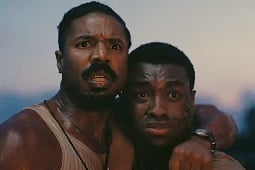
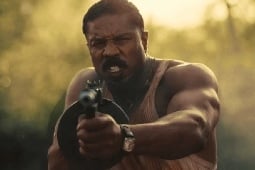
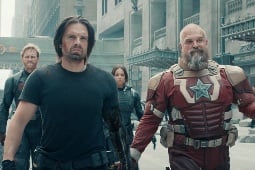
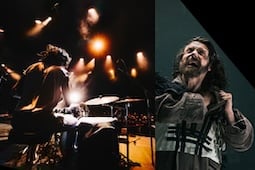
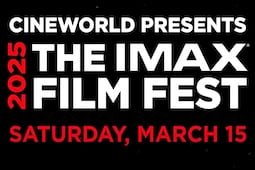
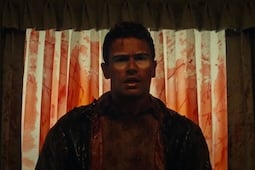
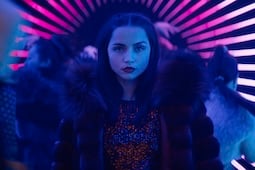
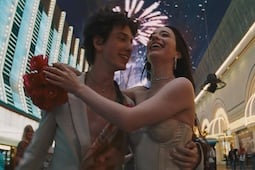
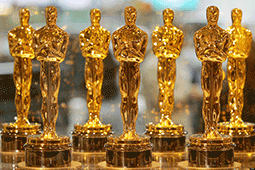


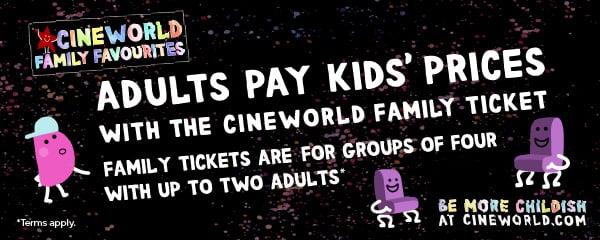

.jpg)
.png)






